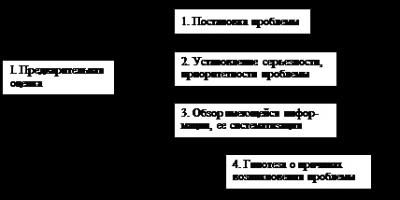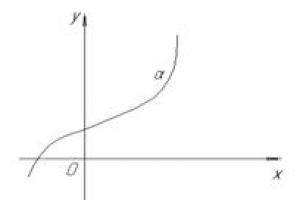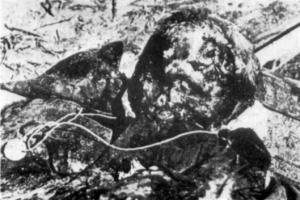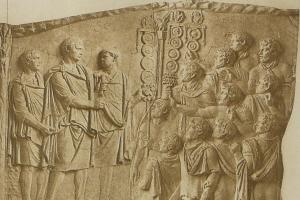The war was fought between the Triple Alliance (Germany, Austria-Hungary, Italy) and the Entente (Russia, England, France). During the war, Turkey (1914) and Bulgaria (1915) joined the Triple Alliance, Italy (1915), Romania (1916), and the USA (1917) joined the Entente.
Causes of the war: the desire of all countries to seize new territories, divide colonies and eliminate competitors; the desire of countries to divert people's attention from internal problems; each country pursued its own goal:
Germany sought to expand its possessions and establish dominance in world politics.
France wanted to return Alsace and Lorraine, as well as seize the Saar coal basin.
Austria-Hungary had territorial claims to Serbia, Montenegro, Romania and Russia, and also sought to suppress the national liberation movement.
England sought to destroy Germany as its main rival in trade, as well as take away oil-rich lands from Turkey.
Italy sought to expand its dominance in the Balkan Peninsula.
Russia wanted to capture Constantinople, the Bosphorus and Dardanelles, and also stop the brewing revolution in Russia.
The immediate cause of the outbreak of the war was the murder of the heir to the Austrian throne, Archduke Franz Ferdinand in Bosnia, and his wife by the Serbian nationalist Gavrilo Princip.
Russian army before the war
first world war russian
The Russian army was predominantly peasant. Its composition was as follows: 80% peasants, 10% workers, 10% other classes. This is quite understandable, because Russia was an agrarian state, and the class that predominated in the population of the country should also predominate in its armed forces.
The Russian army was multinational, the bulk of it were Russians. There were no problems with national intolerance. This state cannot even be compared with Astro-Hungary, where the dominant Swabian-Modiars looked upon the Slavic soldiers as representatives of an inferior race; or with Germany, where, not to mention the abuse of the Poles, Prussian officers sent to the south treated soldiers who came from southern German descent with undisguised contempt.
The Russian soldier lived in a poor and harsh environment. They slept on straw mattresses and the same pillows without pillowcases. We covered ourselves with an overcoat, dirty after training, wet after rain. Only in 1905 was the supply of troops with bed linen and blankets introduced.
The uniform of the Russian army had one major drawback: it was the same for all latitudes - for Arkhangelsk and for the Crimea.
The soldier's food was modest. A typical daily menu for a private: in the morning - tea with rye bread (about 1200 grams of bread per day), for lunch - borscht or soup with 200 grams of meat or fish (after 1905 - 300 grams) and porridge, for dinner - thin gruel, seasoned lard But in terms of the number of calories and taste, the food was quite satisfactory. The soldier's stomach was the subject of special concern for commanders and superiors at all levels. "Tasting" the soldiers' food was a traditional rite performed by the highest commanders, even the tsar, when visiting the barracks.
It should be noted that Russian legislation was the earliest to put an end to corporal punishment (1860s), although even in the English army they were abolished in 1880, and in the English navy in 1906.
In general, Russian legislation, the punitive system and the attitude towards the soldier were much more humane than in foreign first-class armies. In the German army, for example, exceptional cruelty and rudeness reigned. Not only the press, but also official orders spoke about this indignantly. During one year, 1909, 583 sentences were passed by military courts for cruel treatment of soldiers by commanders.
In our army, punishments were established: arrest, appointment outside the queue for work, prohibition of leave, removal to lower positions, etc. There was also rudeness, but only as the reverse side of barracks life - hidden, condemned and persecuted. But this, again, could not be compared with the life of the German army. There was no discord between the rank and file and the officers. This is confirmed by cases when, from under bullets and enemy barbed wire, they risked their lives to pull out their wounded - an officer's soldier, an officer's officer.
Military science was difficult for the peasant soldier, due to illiteracy, lack of pre-conscription training and sports. Before the First World War, up to 40% of illiterate people were drafted into the army. And the army, in which compulsory literacy training was introduced in 1902, itself filled this gap, annually releasing up to 200 thousand reserves who learned to read and write in the service.
The soldier of the Russian army was brave, hardy, unpretentious and disciplined.
World War I
1914 - 1918
The reason for the First World War was the assassination of the heir to the Austro-Hungarian throne, Archduke Franz Ferdinand, on June 15 (28), 1914 in Sarajevo (Bosnia) by Serbian nationalists. Germany decided to use the favorable moment to start a war. Under pressure from Germany, Austria-Hungary presented an ultimatum to Serbia on July 10 (23) and, despite the agreement of the Serbian government to fulfill almost all of its demands, broke off diplomatic relations with it on July 12 (25), and declared war on it on July 15 (28). The capital of Serbia, Belgrade, came under artillery fire. On July 16 (29), Russia began mobilization in the military districts bordering Austria-Hungary, and on July 17 (30) announced general mobilization. On July 18 (31), Germany demanded that Russia stop mobilization and, having received no response, declared war on it on July 19 (August 1). July 21 (August 3) Germany declared war on France and Belgium; On July 22 (August 4), Great Britain declared war on Germany, along with which its dominions - Canada, Australia, New Zealand, the Union of South Africa and the largest colony of India - entered the war. On August 10 (23), Japan declared war on Germany. Italy, formally remaining part of the Triple Alliance, declared its neutrality on July 20 (August 2), 1914.
The assassination of Archduke Franz Ferdinand - the cause or occasion of the First World War?
On June 28, 1914, Gavrilo Princip attempted to assassinate the Austrian heir to the throne, Franz Ferdinand, and his wife in Sarajevo. It is believed that this incident was the reason for the outbreak of the First World War.
Opinions of historians.
Konstantin Zalessky, historian
The assassination of Archduke Franz Ferdinand is not the cause of the First World War, but only a pretext. Moreover, the reason is not very good. To start the war, they used the opportunity that arose at that moment. Moreover, the murder of Franz Ferdinand was not the work of a Serbian organization, but an organization that secretly operated on the territory of Austria-Hungary. Although certain circles in Serbia could have been involved in the murder, however, not the ruling circles. The Serbs responded quite decently to the ultimatum of Austria-Hungary. And after Serbia’s response, in principle, it followed that there was no reason to start the war. As for whether Gavrilo Princip acted on his own initiative or was a puppet in the hands of others, I think that he acted solely for reasons of patriotism. That is, Princip shot at Franz Ferdinand and then at his wife, solely believing that this terrorist act would help liberate the South Slavs from the rule of Austria-Hungary. Another thing is that the entire organization came under the influence of certain terrorist and ultra-radical circles of the Serbian leadership. But I would like to emphasize that not the ruling circles in Serbia, but those who sought to start a conflict. For his part, Princip acted honestly, he had an exclusively patriotic idea. Although, a terrorist is a terrorist, even if he acts with good intentions. And in principle he was not a puppet in the wrong hands. This entire group, which organized the assassination attempt on Franz Ferdinand, acted absolutely consciously.
Andrey Zubov, historian
The assassination of Archduke Franz Ferdinand, of course, was the reason for the outbreak of the First World War. If this were the cause, then the problem could be solved quite easily. And, in general, the incident could have been settled. Historians know very well that Austria consulted with Germany, and Germany believed that the war could start now or never start. That is why military programs, including Russia's, moved forward. And the plan for the rapid defeat of the French army on the Western Front with the subsequent transfer of troops to the Eastern Front and the defeat of Russia failed for a number of technical reasons. Consequently, Germany and Austria were extremely interested in starting the war as soon as possible. And as for how Gavrilo Princip acted, he acted on behalf of the Serbian nationalists. That is, he represented those people who believed that all Slavic lands should be united. Indeed, the movement was quite powerful at that time, so it is quite possible that Princip acted completely sincerely and was not a double agent.
Contemporaries said that this would be the war to end all wars, and they were very wrong. The First World War began on August 1, 1914 with provocation and regicide and ended with the first Compiègne truce on November 11, 1918. The influence on the territories and countries that participated in the war was so great that it became possible to sum up its results and conclude the Treaty of Versailles only in the middle of the next year, 1919 of the year. Six out of ten people across the planet have experienced this war to one degree or another. This is one of the dark pages in the history of mankind.
They say it was inevitable. The disagreements between the future participants were too strong, leading to constantly creating and collapsing alliances. The most inconsistent was Germany, which almost at the same time tried to set Great Britain against France and organize a continental blockade of Britain itself.
Prerequisites for the First World War
If you look at the positions from which countries became involved in the First World War of 1914–1918, the reasons, in fact, will lie on the surface. England, France and Austria-Hungary at the beginning of the twentieth century sought to redistribute the world map. The main reason for this was the collapse of colonialism and prosperity only at the expense of its own satellites. The main European powers were faced with a difficult choice, since resources important for the economy and prosperity of the country (primarily its elite) could no longer be taken away from India or Africa.
The only possible solution lay precisely in military conflicts over raw materials, labor and territories for living. Main conflicts, which flared up on the basis of territorial claims were as follows:

How did the war begin?
It can be said very clearly when did the First World War (WWII) begin?. At the end of June 1914, on the territory of Bosnia and Herzegovina in the city of Sarajevo, the heir to the Austro-Hungarian Empire, Franz Ferdinand, was killed. This was a provocation on the part of the Austrians and with the active participation of British diplomats and the press, a reason for the escalation of the conflict in the Balkans.
 The killer was a Serbian terrorist, a member of the extremist organization “Black Hand” (otherwise called “Unity or Death”) Gavrilo Princip. This organization, along with other similar underground movements, attempted to spread nationalist sentiment throughout the Balkan Peninsula in response to the 1908 annexation of Bosnia and Herzegovina by Austria-Hungary, ushering in the Bosnian Crisis.
The killer was a Serbian terrorist, a member of the extremist organization “Black Hand” (otherwise called “Unity or Death”) Gavrilo Princip. This organization, along with other similar underground movements, attempted to spread nationalist sentiment throughout the Balkan Peninsula in response to the 1908 annexation of Bosnia and Herzegovina by Austria-Hungary, ushering in the Bosnian Crisis.
There have already been several assassination attempts on the account of such formations both successful and unsuccessful, on prominent political figures of the empire and Bosnia and Herzegovina. The day of the assassination attempt on the Archduke was not chosen by chance, because on June 28 he was supposed to participate in events dedicated to the anniversary of the Battle of Kosovo in 1389. Such events on this date were considered by many Bosnians to be a direct insult to their national pride.
In addition to the assassination of the Archduke, during these days there were several attempts to eliminate public figures who opposed the outbreak of hostilities. Thus, a few days before June 28, an unsuccessful attempt was made on the life of Grigory Rasputin, known, among other things, for his anti-war sentiments and great influence at the court of Emperor Nicholas II. And the next day, June 29, Jean Jaurès was killed. He was an influential French politician and public figure who fought against imperialist sentiments, colonialism and, like Rasputin, was an ardent opponent of war.
British influence
After the tragic events in Sarajevo, the two largest powers in Europe - Germany and the Russian Empire - tried to avoid open military confrontation. But this situation did not suit the British at all and diplomatic leverage was used. Thus, after Princip’s assassination of Franz Ferdinand, the English press openly began to call the Serbs barbarians and call on the leadership of the Austro-Hungarian Empire to give them a decisive and tough response. At the same time, through the ambassador, they created pressure on the Russian emperor, calling for all possible assistance to be provided to Serbia if Austria-Hungary decided on any provocations.
And she made up her mind. Almost a month after the successful assassination attempt on the heir, Serbia was presented with demands that were impossible to fulfill. For example, one of its points was the admission of police officers to the territory of a foreign state. The Serbs did not accept only this point, which, as expected, served as a declaration of war. Moreover, the first bombs fell on its capital the very next morning, which clearly indicated the Austro-Hungarians’ readiness to fight immediately.
The Russian Empire, which has always been considered a shield of Orthodoxy and Slavism, had to, after unsuccessful attempts at a diplomatic ceasefire, declare the mobilization of the entire country. Thus, Russian participation in the First World War was inevitable.
Progress of the war
After a series of provocations, the source of the military conflict began to flare up even faster. In about six months, two main military alliances were formed that took part in the confrontation:

Events of 1914
There were several major theaters of combat- the war raged in France, in Russia, in the Balkans, the Middle East and Caucasus and in the former colonies of Europe. The German Schlieffen Plan, which called for a lightning war, lunch in Paris and dinner in St. Petersburg, failed due to Germany's systematic underestimation of its rivals and repeated revisions of strategic tables. In general, the overwhelming majority of participants in the war were absolutely confident that it would end soon, confidently speaking about the possibility of victory in a few months. No one expected the conflict to reach such proportions, especially on the Western Front.
 First, Germany occupied Luxembourg and Belgium. At the same time, the French invasion of Alsace and Lorraine, which was important for them, was unfolding, where after the successful actions of the German army, which restrained and then reversed the offensive, the situation changed dramatically. The French, instead of seizing their historical territories, ceded part of their land without putting up a strong enough resistance. After the events called by historians the “Run to the Sea” and France’s retention of its most important ports, a period of trench warfare followed. The confrontation greatly exhausted both sides.
First, Germany occupied Luxembourg and Belgium. At the same time, the French invasion of Alsace and Lorraine, which was important for them, was unfolding, where after the successful actions of the German army, which restrained and then reversed the offensive, the situation changed dramatically. The French, instead of seizing their historical territories, ceded part of their land without putting up a strong enough resistance. After the events called by historians the “Run to the Sea” and France’s retention of its most important ports, a period of trench warfare followed. The confrontation greatly exhausted both sides.
Eastern front was opened by an offensive on the territory of Prussia by Russian troops on August 17, and the very next day a major victory was won over the Austro-Hungarians in the Battle of Galicia. This made it possible to remove the empire from confrontation with Russia for a long time.
This year Serbia drove the Austrians out of Belgrade and firmly occupied it. Japan declared war on the Triple Alliance and launched a campaign to take control of the German island colonies. At the same time, in the Caucasus, Turkey entered the war with Russia, entering into a coalition with the Austrians and Germans. Thus, she cut off the country from its allies and involved it in hostilities on the Caucasian front.
Russia's failure in 1915
 On the Russian front the situation worsened. The army was poorly prepared for the winter offensive, failed it and received a counter-offensive operation from the Germans in the middle of the year. Poorly organized supply of troops led to a large-scale retreat; the Germans carried out the Gorlitsky breakthrough and, as a result, first gained Galicia, and then a significant part of Polish territory. After this, the stage of trench warfare began, largely due to the same reasons as in the West.
On the Russian front the situation worsened. The army was poorly prepared for the winter offensive, failed it and received a counter-offensive operation from the Germans in the middle of the year. Poorly organized supply of troops led to a large-scale retreat; the Germans carried out the Gorlitsky breakthrough and, as a result, first gained Galicia, and then a significant part of Polish territory. After this, the stage of trench warfare began, largely due to the same reasons as in the West.
In the same year, on May 23, Italy entered the war with Austria-Hungary, which resulted in the collapse of the coalition. However, Bulgaria, which took part in the confrontation on its side in the same year, not only marked the rapid formation of a new union, but also accelerated the fall of Serbia.
Key moments of 1916
Throughout this year of war, one of its largest battles continued - Battle of Verdun. Because of its scale, the nature of the clashes and the consequences, it was called the Verdun Meat Grinder. A flamethrower was used here for the first time. The losses of all troops amounted to over a million people. At the same time, the Russian army carried out an offensive known as the Brusilov breakthrough, drawing significant German forces away from Verdun and easing the Entente's situation in the region.
The year was also marked by the largest naval battle - the Jutland battle, after which the Entente fulfilled its main goal - to dominate the region. Some members of the enemy tried to agree on peace negotiations even then.
1917: Russia's withdrawal from the war
The year 1917 was rich in major events in the war. It has already become obvious who will win. It is worth noting  3 most important points for understanding the situation:
3 most important points for understanding the situation:
- The United States, after biding its time, joined the obvious winner - the Entente.
- The revolution in Russia actually brought it out of the war.
- Germany is using submarines, hoping to thereby turn the tide of battle.
1918: German surrender
Russia's withdrawal from active hostilities made things easier for Germany, because without the Eastern Front, it could concentrate its forces on more important things. The Treaty of Brest-Litovsk was concluded, parts of the Baltic region and the territory of Poland were occupied. After this, active operations began on the Western Front, which were not crowned with success for her. Other participants began to leave the Fourth Alliance and conclude peace treaties with the enemy. A revolution began to flare up in Germany, forcing the emperor to leave the country. The signing of the act of surrender of Germany on November 11, 1918 can be considered the end of the active phase of hostilities.
If we talk about the results of the First World War, then for almost all participating countries they were with a minus sign. Briefly point by point:

It is worth noting that even then the preconditions for the Second World War began to take shape. It was only a matter of time before a leader emerged who would rally the revenge-seeking residents of defeated Germany.
Introduction
I chose the topic “Russia in the First World War” because I am interested in this period, since it greatly influenced the future fate of Russia and therefore in my work I want to consider Russia's role in the First World War. This war became a turning point in history, and not only in our country, but in world history. She was unfairly “forgotten” for 70 years. There has been very little research on the history of the First World War, and those that have been written have been written from the point of view of condemnation of the war. And I would like to objectively study this event.
In order to explore the topic more fully, I considered it necessary to understand the causes of the war; find out what caused it; trace how military operations developed; study the events of the war that became a turning point in its course; and understand how and why the Brest Peace Treaty was concluded.
Reason for war
June 15(28), 1914 In the Bosnian city of Sarajevo, Serbian terrorist Gavrilo Princip shot and killed the heir to the Austro-Hungarian throne, Archduke Franz Ferdinand, and his wife. On July 10, Austria-Hungary, suspecting the Serbian government of involvement in the murder, presented Serbia with an ultimatum demanding that it ban the activities of anti-Austrian organizations, punish the Serbian border guards who assisted the terrorists, and allow Austrian representatives into the country to participate in the investigation of the murder.
The Serbs accepted all the demands put forward, except one, which contradicted the Serbian constitution. Austria-Hungary broke off diplomatic relations with Belgrade and declared war on Serbia on July 15 (28). Her actions were supported by Germany. Emperor Wilhelm II of Hohenzollern called: “The Serbs must be dealt with, and now.” In Vienna and Berlin they were confident that the matter would be limited to a short and victorious war with Serbia. However, the war became a global war in a matter of days.
Causes and nature of the war
I will start my essay with the main causes of the First World War. The First World War arose as a result of the intensification of the political and economic struggle between the largest imperialist countries for markets and sources of raw materials, for the redivision of an already divided world. At the beginning of the twentieth century, the division of the world had already been completed, there were no territories left on the globe that had not yet been captured by the capitalist powers, there were no more so-called “free spaces” left. “It has arrived,” V.I. pointed out. Lenin, “inevitably the era of monopoly ownership of colonies, and, consequently, a particularly intensified struggle for the division of the world.” Lenin V.I. Full Collection Soch., vol. 27, p. 422.
As a result of the uneven, spasmodic development of capitalism in the era of imperialism, some countries that took the capitalist path of development later than others quickly caught up and surpassed such old colonial countries as England and France in technical and economic terms. Particularly indicative was the development of Germany, which by 1900. surpassed these countries in terms of industrial production, but was significantly inferior in the size of its colonial possessions. Because of this, the interests of Germany and England collided most often. Germany openly sought to capture British markets in the Middle East and Africa.
Germany's colonial expansion was met with resistance from France, which also had huge colonies. Very sharp contradictions between the countries existed over Alsace and Lorraine, captured by Germany back in 1871.
With its penetration into the Middle East, Germany created a threat to Russian interests in the Black Sea basin. Austria-Hungary, allied with Germany, became a serious competitor to Tsarist Russia in the struggle for influence in the Balkans.
The aggravation of foreign policy contradictions between the largest countries led to the division of the world into two hostile camps and the formation of two imperialist groupings: the Triple Alliance (Germany, Austria-Hungary, Italy) and the Triple Agreement, or Entente (England, France, Russia).
The war between the major European powers was beneficial to the US imperialists, since as a result of this struggle, favorable conditions emerged for the further development of American expansion, especially in Latin America and the Far East. American monopolies relied on maximizing benefits from Europe.
In preparing for war, the imperialists saw in it not only a means of resolving external contradictions, but also a means that could help them cope with the growing discontent of the population of their own countries and suppress the growing revolutionary movement. The bourgeoisie hoped during the war to destroy the international solidarity of the workers, to physically exterminate the best part of the working class, for the socialist revolution.
Due to the fact that the war for the redivision of the world affected the interests of all imperialist countries, most of the world's states gradually became drawn into it. The war became global, both in its political goals and in scale.
By its nature, the war of 1914-1918 was imperialistic, aggressive, unfair on both sides. It was a war over who could plunder and oppress more. The majority of the parties of the Second International, betraying the interests of the working people, advocated war in support of the bourgeoisie and the governments of their countries.
The Bolshevik Party led by V.I. Lenin, having determined the nature of the war, called for a fight against it, for turning the imperialist war into a civil war.
In 1914, 38 states were drawn into the battle to redistribute the world. To understand the causes of the First World War, you need to look at the political situation that developed in the previous two or three decades before the start of these terrible events.
Briefly about the background to the First World War
After the victory in the Austro-Prussian War, the German Empire began to rapidly increase its economic and military potential. Germany did not have its own colonies comparable to the colonial territories of Great Britain and France, which pushed Berlin to an armed conflict with these states over African and American lands.
In turn, a series of changes and reforms took place in the Russian Empire. Stolypin and Witte transformed Russia, and active settlement of Siberia and the Far East was underway. The resulting Russo-Japanese War showed all the weaknesses in the military-industrial complex and the organization of the army, and the subsequent revolution greatly changed the balance of political forces in the country. In addition, socio-economic changes took place intensively.
The “patchwork empire” of the Habsburgs remained a constant source of instability. In Austria-Hungary, various uprisings on national grounds broke out every now and then.
The Middle East has been a Gordian Knot for all world powers. The Ottoman Empire was gradually falling apart and each country set as its goal to grab a tasty morsel from its territories. For example, Russia set its goals and plans to gain control over the Bosporus and Dardanelles, as well as annex Anatolia, where Christian Armenians lived.
TOP 5 articleswho are reading along with this

Rice. 1. Map of the world by 1914.
War was brewing. The Balkans were a powder keg that sooner or later was bound to explode throughout Europe.
The 28th President of the United States said after the start of the war: “Everyone is looking and not finding the reason why the war started. Their search is in vain; they will not find this reason. The war did not start for any one reason, the war started for all reasons at once.”

Rice. 2. Map of the Triple Alliance and the Entente.
Causes of the First World War
By 1914, 2 military-political blocs had formed in Europe. Let's look at them point by point.
- Entente . This included the Russian Empire, Great Britain and France. Formed in 1907.
- Triple Alliance . It included Germany, Austria-Hungary, and Italy.
Having introduced all the participants, let us consider the emerging causes of the coming world war. They are shown in the table below.
| State | Reason for participation |
| British Empire |
|
| France |
|
| Russian empire |
|
| Serbia |
|
| Bulgaria |
|
| Austria-Hungary |
|
| Germany |
|
| Ottoman Empire |
|
In addition to the above, there was the so-called “Polish question”. Russia pursued a policy of Russification of the Polish population. The Poles, in turn, sought to gain independence from Russia and unite the Polish lands.
Despite all the above reasons, the main reason remains for the redivision of the world map. Britain and France did not want to share the captured colonies, and Germany and its allies sought to obtain these colonies for themselves.








